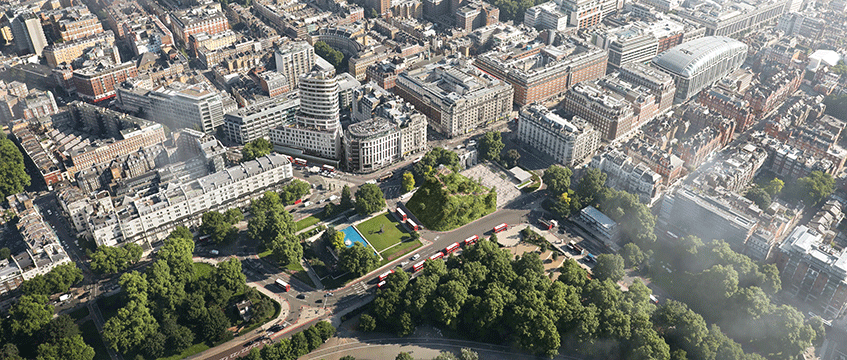Westminster City Council has set out proposed planning policies on retrofitting and affordable housing.
The proposals mean developers will have to explore the option of retrofitting before demolishing buildings.
The move is designed to accelerate the upgrading of commercial buildings, cut carbon emissions and help the capital reach net zero by 2040.
The proposed policy will be consulted on from 14 March for six weeks as part of a review of the council’s City Plan.
Westminster’s City Plan has also identified four sites – St Mary’s Hospital, Westbourne Park Bus Garage, land adjacent to Royal Oak and Grosvenor Sidings – that the council believes offer the potential for significant mixed-use development.
The new site allocation policies will set out which uses are suitable for each of these areas.
Retrofitting
The council’s retrofit-first policy recognises that for some cases, demolition and rebuild is the best option, but it encourages developers to fully investigate options for retrofit and extension at the outset.
Retrofit-first will for the first time assess the whole-life carbon emissions of buildings, considering the environmental impact of demolition, rebuild and the future existence of the development.
Where demolition is supported, the new policy will also encourage developers to maximise recycling from existing buildings to minimise the environmental impact.
Embodied carbon emission targets will be applied to all new developments, based on benchmarks set by the London Energy Transformation Initiative. These targets will reduce the embodied carbon emissions for new development in Westminster, which currently sits at around 725kg of CO2 per sq m.
If the policy is adopted, this could save 480,000 tonnes of carbon between now and 2040, the equivalent to heating 11,000 homes a year.
Affordable housing
The updated City Plan aims to help meet the housing needs of Westminster’s families by supporting more sustainable and genuinely affordable housing. The proposals will change the requirement of the affordable housing split in new developments from 40% to 70% for social housing and from 60% to 30% for intermediate housing.
The new policy will introduce a requirement for sites delivering less than 10 homes to contribute to affordable housing delivery for the first time. This means all residential development will help deliver more affordable homes.
Alongside the partial review of the council’s City Plan, new supplementary planning guidance was put forward for decision last month, which details the type of affordable housing the council wants to see built and changes the approach to intermediate housing so residents with lower incomes get the homes they need.
Image from Westminster City Council
Send feedback to Akanksha Soni
Follow Estates Gazette











